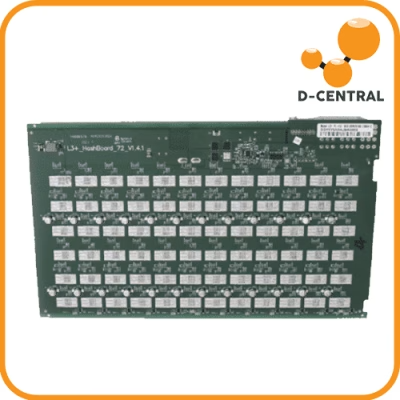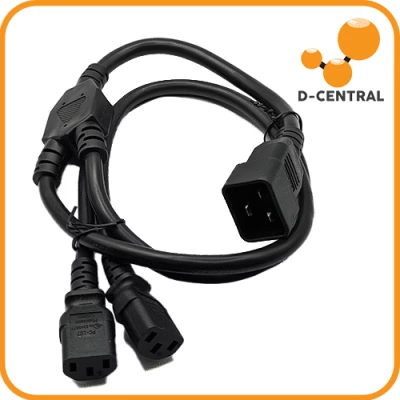In the rapidly evolving world of digital currencies, Bitcoin stands as a cornerstone, revolutionizing how we perceive and engage with financial transactions on a global scale. At the heart of this transformation are Bitcoin transactions, the fundamental processes that enable the transfer of value across an open, decentralized network. These transactions are not only pivotal to the functioning of the Bitcoin ecosystem but also exemplify the potential of blockchain technology to create a more transparent, efficient, and secure financial system.
However, as the network grows and the volume of transactions increases, the time required to confirm these transactions has become a point of contention and focus for both users and developers. This is where the concept of zero-confirmation transactions emerges as a critical innovation. Zero-confirmation transactions, as the name suggests, are transactions that are broadcast to the network but have not yet been confirmed by being included in a block. Despite their unconfirmed status, these transactions play a vital role in facilitating faster transactions, offering a solution to the scalability and speed challenges inherent in the Bitcoin network.
By enabling transactions to be accepted and considered valid before they are officially confirmed in a block, zero-confirmation transactions significantly reduce waiting times for smaller, everyday transactions. This not only enhances the user experience by making Bitcoin more practical for daily use but also underscores the digital currency’s potential to compete with traditional, instantaneous payment methods. As we delve deeper into the intricacies of Bitcoin transactions and the innovative approach of zero-confirmation transactions, it becomes clear that these mechanisms are integral to the ongoing development and adoption of the digital currency ecosystem.
The Basics of Bitcoin Zero-Confirmation Transactions
In the realm of Bitcoin, transactions are the lifeblood that powers the entire network, facilitating the transfer of value from one participant to another. Among the various types of transactions that occur within this digital currency ecosystem, zero-confirmation transactions stand out for their ability to expedite the transaction process. Understanding these transactions is crucial for anyone looking to grasp the full spectrum of Bitcoin’s capabilities and the innovative solutions it offers to traditional transaction delays.
Definition of Zero-Confirmation Transactions in the Context of Bitcoin
Zero-confirmation transactions refer to Bitcoin transactions that have been broadcast to the network but have not yet been included in a block by miners. Essentially, these transactions are in a pending state, awaiting confirmation. Despite their unconfirmed status, they are visible to participants in the network, signaling the intent of a sender to transfer a specific amount of Bitcoin to a receiver. The “zero-confirmation” label indicates that the transaction has received zero confirmations from miners, which is a departure from the traditional process where transactions are confirmed by being included in a mined block.
How Zero-Confirmation Transactions Differ from Fully Confirmed Transactions
The primary difference between zero-confirmation transactions and fully confirmed transactions lies in their confirmation status and the security assurance they offer. Fully confirmed transactions have been included in a block and verified by miners, a process that typically takes around 10 minutes per block but can vary depending on network congestion and transaction fees. These confirmations serve as proof that the network has reached a consensus on the transaction’s validity, significantly reducing the risk of double-spending.
In contrast, zero-confirmation transactions do not have this level of security assurance since they have not been included in a block. They represent a promise of payment rather than a finalized transaction, which introduces a degree of risk, particularly the possibility of double-spending by malicious actors. However, for small or time-sensitive transactions, the speed advantage offered by accepting zero-confirmation transactions often outweighs these risks.
The Process of Broadcasting a Transaction to the Network Before It’s Included in a Block
The journey of a zero-confirmation transaction begins the moment it is broadcast to the Bitcoin network. This broadcasting is done by the sender’s wallet software, which transmits the transaction details to network nodes. These nodes then propagate the transaction across the network, making it visible to all participants, including potential miners who may choose to include it in the next block they mine.
This process highlights the decentralized nature of the Bitcoin network, where transactions are shared peer-to-peer without the need for a central authority to approve or deny them. The speed at which a zero-confirmation transaction is accepted and becomes visible on the network underscores Bitcoin’s potential for facilitating quick, borderless payments, a stark contrast to the often slow and bureaucratic processes found in traditional banking systems.
The Significance of Zero-Confirmation Transactions
In the digital age, where speed and efficiency are paramount, the Bitcoin network faces the challenge of meeting the growing demand for quick and reliable transactions. As Bitcoin continues to evolve as a major player in the digital currency ecosystem, the importance of transaction speed and efficiency cannot be overstated. Zero-confirmation transactions emerge as a pivotal solution in this context, offering a blend of speed and utility that addresses some of the inherent limitations of the Bitcoin network.
The Importance of Speed and Efficiency in Bitcoin Transactions
The speed at which transactions are processed and confirmed is a critical factor that influences the usability and adoption of Bitcoin. In traditional financial systems, transactions can be processed almost instantaneously, a level of efficiency that digital currencies must match or exceed to become viable alternatives for everyday use. However, the decentralized nature of Bitcoin, while offering numerous advantages in terms of security and transparency, introduces complexities in transaction processing, primarily due to the time required to achieve consensus across the network and confirm transactions.
This is where the efficiency of zero-confirmation transactions becomes evident. By allowing transactions to be recognized and acted upon before they are confirmed by miners, the Bitcoin network can facilitate exchanges of value with a speed that approaches that of conventional payment methods. This efficiency is crucial not only for enhancing the overall performance of the network but also for ensuring that Bitcoin remains competitive in a rapidly evolving digital economy.
The Role of Zero-Confirmation Transactions in Enhancing User Experience and Facilitating Small, Quick Transactions
Zero-confirmation transactions play a significant role in enhancing the user experience within the Bitcoin ecosystem. For small, everyday transactions, such as buying a coffee or paying for a quick service, the delay associated with waiting for a transaction to be confirmed can be a deterrent for both users and merchants. Zero-confirmation transactions address this issue by allowing these small transactions to proceed without the need for block confirmation, thereby reducing wait times and improving the overall user experience.
This immediacy is not just about convenience; it’s a critical factor in the broader adoption of Bitcoin for daily transactions. By facilitating small, quick transactions, zero-confirmation transactions make Bitcoin a more practical and attractive option for a wide range of uses. Merchants can accept Bitcoin payments with the confidence that they will receive funds in a timely manner, while consumers enjoy the benefits of a fast, secure digital currency. This synergy between speed, efficiency, and utility underscores the transformative potential of zero-confirmation transactions in driving the future of Bitcoin as a widely used digital currency.
How Zero-Confirmation Transactions Work
Understanding the mechanics behind zero-confirmation transactions is essential for grasping their role and significance within the Bitcoin network. These transactions represent a nuanced balance between the need for speed in transaction processing and the decentralized, secure nature of Bitcoin. From the moment a transaction is broadcast until it potentially becomes confirmed, a series of intricate steps are undertaken, involving various components of the Bitcoin network, most notably miners and the mempool.
Detailed Explanation of the Transaction Process from Broadcast to Potential Confirmation
The journey of a zero-confirmation transaction begins when a sender initiates a transfer of bitcoins to a recipient. This initiation is essentially the creation of a transaction record, which specifies the sender, the recipient, and the amount of Bitcoin to be transferred. Once created, this transaction is broadcast to the Bitcoin network, a step that makes the transaction known to network participants but does not yet secure its place in the blockchain.
Upon broadcast, the transaction enters the mempool (memory pool), which is a sort of waiting room for all unconfirmed transactions. The mempool holds these transactions until miners select them for inclusion in a new block. It’s important to note that transactions in the mempool are public and visible to anyone who queries it, which is why zero-confirmation transactions can be used for quick, albeit less secure, transfers.
The Role of Miners and the Mempool in Processing These Transactions
Miners play a crucial role in the transition of a transaction from zero-confirmation to confirmed status. They do this by including transactions in the blocks they mine. Mining involves solving complex cryptographic puzzles, a process that requires significant computational power and energy. When a miner successfully solves the puzzle, they have the right to add a new block to the blockchain, which includes a selection of transactions from the mempool.
The selection process is influenced by transaction fees; miners are incentivized to include transactions with higher fees because these fees are collected by the miner as a reward, in addition to the block reward. This economic incentive structure means that during times of high network congestion, transactions with higher fees are more likely to be selected from the mempool for confirmation.
Once a transaction is included in a block and that block is added to the blockchain, the transaction receives its first confirmation. Additional confirmations occur as subsequent blocks are added to the chain, each further securing the transaction’s place in the blockchain and reducing the risk of reversal.
Zero-confirmation transactions, by their nature, bypass the wait for this mining-based confirmation, relying instead on the trust that they will soon be included in a block. While this accelerates the transaction process, it introduces risks, primarily the potential for double spending. The network mitigates these risks through various protocols and practices, but the acceptance of zero-confirmation transactions generally depends on the parties’ willingness to accept the associated risks for the sake of speed.
Risks and Challenges
The innovation of zero-confirmation transactions within the Bitcoin network has significantly enhanced the speed and efficiency of transactions. However, this advancement does not come without its own set of risks and challenges, the most notable of which is the risk of double-spending. Understanding these risks and the security measures developed to mitigate them is crucial for users and merchants who engage in or accept zero-confirmation transactions.
The Risk of Double-Spending with Zero-Confirmation Transactions
Double-spending occurs when a user attempts to spend the same bitcoins more than once. In the context of zero-confirmation transactions, this risk is particularly pronounced because these transactions have not yet been included in a block and confirmed by the network. Until a transaction is confirmed, there is a possibility that the sender could broadcast another transaction using the same inputs to a different recipient. If the malicious second transaction is confirmed before the first, the first recipient may not receive the promised funds, leading to a loss.
This risk is inherent in the design of digital currencies, where digital information can be replicated with ease. The blockchain and the process of transaction confirmation were designed to solve this problem by ensuring that once a transaction is confirmed, it is computationally infeasible to reverse or duplicate. However, zero-confirmation transactions, by their very nature, sidestep this security mechanism, leaving a window of vulnerability for double-spending attacks.
Security Measures and Protocols Developed to Mitigate These Risks
In response to the risks associated with zero-confirmation transactions, the Bitcoin community and developers have proposed and implemented several security measures and protocols to mitigate the potential for double-spending:
- Monitoring and Analysis Tools: Various services and tools have been developed to monitor the network for double-spend attempts. These tools analyze the mempool to detect when two transactions with the same inputs are broadcast, alerting recipients to potential double-spending.
- Replace-by-Fee (RBF) Protocol: The RBF protocol allows a sender to rebroadcast a transaction with a higher fee if the original transaction is taking too long to confirm. While primarily designed to speed up transaction confirmation times, RBF can also be used to preempt potential double-spend attacks by ensuring that the legitimate transaction is confirmed first.
- Child Pays for Parent (CPFP): CPFP is a strategy used by recipients of unconfirmed transactions to expedite confirmation. By creating a new transaction that spends the outputs of the unconfirmed transaction and includes a high fee, the recipient can incentivize miners to confirm both transactions in quick succession, reducing the window for a double-spend attack.
- Merchant Acceptance Policies: Some merchants and service providers who accept zero-confirmation transactions implement their own risk mitigation strategies. These may include setting limits on the value of zero-confirmation transactions accepted, using proprietary algorithms to assess the risk of double-spending, or requiring additional confirmations for larger transactions.
Despite these measures, the risk of double-spending with zero-confirmation transactions cannot be entirely eliminated. The acceptance of these transactions often involves a calculated risk, balanced against the benefits of increased speed and efficiency. As the Bitcoin network continues to evolve, ongoing efforts to enhance security and develop new protocols are critical to minimizing risks and ensuring the trustworthiness of zero-confirmation transactions.
Technological Solutions and Innovations
The Bitcoin ecosystem is continually evolving, with developers and researchers tirelessly working to address the inherent challenges and risks associated with zero-confirmation transactions. Among these challenges, the risk of double-spending has prompted the development of several technological solutions and innovations. These advancements aim not only to secure zero-confirmation transactions but also to enhance the overall efficiency and reliability of the Bitcoin network.
Overview of Technological Advancements Aimed at Securing Zero-Confirmation Transactions
- Double-Spend Proofs: One of the innovative solutions developed to mitigate the risk of double-spending in zero-confirmation transactions is the concept of double-spend proofs. This technology allows nodes in the network to detect and alert others about a double-spend attempt without requiring the transaction to be confirmed first. By providing proof that a double-spend has been attempted, the network can take preemptive action to prevent the fraudulent transaction from being confirmed, thereby protecting the recipient.
- Lightning Network: The Lightning Network represents a significant leap forward in addressing the limitations of the Bitcoin blockchain, including the risks associated with zero-confirmation transactions. As a second-layer protocol, the Lightning Network enables instant, high-volume micropayments by creating a network of payment channels between users that do not require transactions to be recorded on the blockchain immediately. This approach not only reduces the burden on the blockchain but also minimizes the risk of double-spending, as transactions within the Lightning Network are secured by the underlying blockchain protocol.
- Secure Payment Protocols: Various secure payment protocols have been developed to enhance the security of zero-confirmation transactions. These protocols establish a more secure communication channel between the sender and the recipient, ensuring that the transaction details are verified and agreed upon by both parties before the transaction is broadcast. This reduces the likelihood of fraudulent transactions and increases the overall trust in zero-confirmation transactions.
The Future of Zero-Confirmation Transactions in the Wake of These Advancements
The ongoing development and implementation of these technological solutions are shaping a promising future for zero-confirmation transactions. As these innovations continue to mature and gain adoption, the security and efficiency of zero-confirmation transactions are expected to improve significantly. This progress could lead to broader acceptance and use of zero-confirmation transactions for everyday purchases and microtransactions, making Bitcoin a more viable and competitive option for instant payments.
Moreover, these advancements highlight the Bitcoin community’s commitment to innovation and security. By addressing the challenges associated with zero-confirmation transactions, the community is not only enhancing the usability of Bitcoin but also reinforcing the trust and reliability of the network. As we look to the future, the continued evolution of these technologies will play a crucial role in the growth and adoption of Bitcoin as a leading digital currency.
The integration of these technological solutions into the Bitcoin ecosystem marks a pivotal step towards overcoming the limitations of traditional blockchain transactions. With the potential to significantly reduce the risks associated with zero-confirmation transactions, these innovations pave the way for a more secure, efficient, and user-friendly Bitcoin network.
Practical Applications and Real-World Use Cases
The advent of zero-confirmation transactions has opened up new avenues for Bitcoin’s use in everyday commerce, significantly enhancing its utility as a digital currency. By allowing transactions to be accepted before they are confirmed by miners, zero-confirmation transactions have made Bitcoin a more viable option for merchants and service providers across various industries. This section explores the practical applications and real-world use cases of zero-confirmation transactions, highlighting their impact on the Bitcoin payment ecosystem.
Examples of Businesses and Services That Accept Zero-Confirmation Transactions
- Retail and E-commerce: Many online retailers and e-commerce platforms have started to accept zero-confirmation Bitcoin transactions for small to medium-sized purchases. This acceptance is driven by the need for fast transaction processing times that align with the expectations of online shoppers, ensuring a smooth and efficient checkout experience.
- Food and Beverage Industry: Restaurants, cafes, and fast-food chains, particularly those with a digital-first approach, have begun accepting zero-confirmation transactions to expedite the payment process. This is especially useful in high-volume, quick-service environments where speed is of the essence.
- Service Providers: Various service providers, including web hosting companies, online service platforms, and freelance professionals, accept zero-confirmation transactions to facilitate quick payments for their services. This allows for immediate access to services, enhancing customer satisfaction.
- Physical Retail Stores: A growing number of physical retail stores are experimenting with zero-confirmation transactions for in-store purchases. This adoption is part of a broader strategy to integrate digital currencies into traditional retail environments, offering customers a wider range of payment options.
The Impact of Zero-Confirmation Transactions on the Bitcoin Payment Ecosystem
The integration of zero-confirmation transactions into the Bitcoin payment ecosystem has had a profound impact on how Bitcoin is used and perceived as a medium of exchange. Here are some key areas of impact:
- Increased Merchant Adoption: The ability to accept zero-confirmation transactions has lowered the barrier to entry for merchants interested in accepting Bitcoin. This increased merchant adoption contributes to the mainstream acceptance of Bitcoin as a legitimate and practical payment method.
- Enhanced User Experience: For consumers, zero-confirmation transactions offer a seamless and convenient payment experience that rivals traditional electronic payment methods. This enhanced user experience is crucial for encouraging the use of Bitcoin for everyday transactions.
- Boost in Transaction Volume: As more businesses and services accept zero-confirmation transactions, the volume of Bitcoin transactions is likely to increase. This boost in transaction volume reflects the growing utility of Bitcoin beyond mere investment or speculation.
- Innovation in Payment Processing: The adoption of zero-confirmation transactions has spurred innovation in payment processing solutions, including point-of-sale systems and payment gateways designed to handle Bitcoin transactions efficiently. These innovations further integrate Bitcoin into the global payment infrastructure.
The practical applications and real-world use cases of zero-confirmation transactions demonstrate Bitcoin’s evolving role in the digital economy. By enabling faster and more efficient transactions, zero-confirmation transactions are not only expanding the use cases for Bitcoin but also reinforcing its position as a versatile and widely accepted digital currency.
Controversies and Community Perspectives
The introduction and use of zero-confirmation transactions within the Bitcoin network have sparked considerable debate and discussion among community members. These discussions revolve around the balance between transaction speed and security, highlighting differing perspectives on the safety and reliability of accepting transactions before they are confirmed by miners. This section delves into the controversies surrounding zero-confirmation transactions and explores the varied perspectives from developers, miners, and users.
Overview of the Debates Within the Bitcoin Community Regarding the Safety and Reliability of Zero-Confirmation Transactions
The primary controversy surrounding zero-confirmation transactions centers on the risk of double-spending and the potential for fraudulent activities. Critics argue that by accepting transactions without confirmation, merchants and users expose themselves to the risk of accepting payments that could later be reversed. This concern is particularly acute in scenarios where the value of the transaction is significant or where the goods and services exchanged are irreversible.
On the other hand, proponents of zero-confirmation transactions point to the practical necessity of such transactions for the widespread adoption of Bitcoin as a payment method. They argue that for small, everyday transactions, the risk of double-spending is minimal and acceptable compared to the benefits of instant payments. Furthermore, they highlight technological advancements and security measures that can mitigate these risks, making zero-confirmation transactions safer and more reliable.
Perspectives from Developers, Miners, and Users on the Acceptance and Use of Zero-Confirmation Transactions
- Developers: The developer community is divided on the issue of zero-confirmation transactions. Some developers are focused on creating solutions to enhance the security of these transactions, such as double-spend proofs and improved monitoring tools. Others advocate for alternative approaches, such as the Lightning Network, to achieve instant transactions without compromising on security.
- Miners: Miners play a crucial role in the Bitcoin network, and their perspective on zero-confirmation transactions is influenced by the economic incentives of mining. While miners do not directly decide whether zero-confirmation transactions should be accepted, their practices, such as transaction selection based on fees, indirectly impact the reliability of these transactions. Some miners support the use of zero-confirmation transactions as a means to increase transaction volume and fees, while others remain neutral, focusing instead on the technical aspects of mining.
- Users: Among Bitcoin users, perspectives on zero-confirmation transactions vary widely based on individual risk tolerance and the specific use case. Users who prioritize speed and convenience for small transactions tend to support the acceptance of zero-confirmation transactions. In contrast, users concerned with security and the potential for financial loss are more cautious, preferring to wait for confirmations even if it means slower transactions.
The ongoing debates and diverse perspectives within the Bitcoin community reflect the complex trade-offs between speed, convenience, and security in digital transactions. As the Bitcoin network continues to evolve, these discussions are crucial for guiding the development of policies, technologies, and practices that can accommodate the varying needs and concerns of all community members. The future of zero-confirmation transactions will likely depend on finding a consensus that balances these factors, ensuring that Bitcoin remains a secure, efficient, and user-friendly digital currency.
Conclusion
Throughout this exploration of zero-confirmation transactions, we’ve delved into the intricacies of this innovative feature within the Bitcoin network, highlighting its role in facilitating faster transactions, the risks and challenges it presents, and the technological solutions aimed at enhancing its security. We’ve also examined the practical applications and real-world use cases that benefit from zero-confirmation transactions, as well as the diverse perspectives within the Bitcoin community regarding their safety and reliability.
Zero-confirmation transactions stand as a testament to the ongoing evolution of Bitcoin, striking a balance between the need for speed and the imperative of security. By enabling transactions to be accepted before they are confirmed by miners, zero-confirmation transactions significantly enhance the efficiency and user-friendliness of Bitcoin, making it a more viable option for everyday transactions and small purchases. This adaptability not only demonstrates Bitcoin’s potential to compete with traditional payment methods but also underscores its capacity to innovate and evolve in response to user needs.
However, the discussions and debates within the Bitcoin community highlight the complexity of implementing such features without compromising the foundational principles of security and decentralization that Bitcoin is built upon. The perspectives of developers, miners, and users reflect a vibrant ecosystem that is continually striving to balance these competing demands, driving forward with technological advancements and solutions that secure the network while maintaining its openness and accessibility.
As we look to the future, the significance of zero-confirmation transactions in the broader context of Bitcoin’s development cannot be overstated. These transactions represent a critical step towards realizing the full potential of Bitcoin as a digital currency that is not only secure and decentralized but also fast and user-friendly.
We encourage readers to dive deeper into the fascinating world of Bitcoin and its underlying technologies. Whether you’re a seasoned Bitcoin enthusiast or new to the world of digital currencies, there’s always more to learn about the innovations and challenges that shape this dynamic ecosystem. Explore educational resources, participate in community discussions, and stay informed about the latest developments in blockchain technology.
We also invite you to share your experiences and thoughts on zero-confirmation transactions. Have you used them in your transactions, or do you have concerns about their security? Engaging with the content and contributing to the conversation helps enrich our collective understanding and drives the Bitcoin community forward.
Together, we can continue to explore the possibilities that Bitcoin and blockchain technology offer, pushing the boundaries of what’s possible in the digital age.
FAQ
What are zero-confirmation transactions in Bitcoin?
Zero-confirmation transactions in Bitcoin refer to transactions that have been broadcast to the network but have not yet been confirmed by being included in a block. Despite being unconfirmed, these transactions facilitate faster transaction times, offering a solution to Bitcoin’s scalability and speed challenges.
How do zero-confirmation transactions differ from fully confirmed transactions?
The main difference between zero-confirmation transactions and fully confirmed transactions is their confirmation status and the security assurance they provide. Fully confirmed transactions are included in a block and verified by miners, reducing the risk of double-spending. In contrast, zero-confirmation transactions are not yet included in a block, posing a higher risk but enabling quicker transaction processing.
What risks are associated with zero-confirmation transactions?
The primary risk associated with zero-confirmation transactions is the potential for double-spending, where the same bitcoins are spent more than once. This risk exists because these transactions have not been confirmed by the network, making them less secure than fully confirmed transactions.
What are some technological solutions aimed at securing zero-confirmation transactions?
Technological solutions include double-spend proofs to alert the network of a double-spend attempt, the Lightning Network for instant micropayments secured by the blockchain, and secure payment protocols to verify transaction details before broadcasting, all aiming to reduce risks and enhance the security of zero-confirmation transactions.
What are the practical applications of zero-confirmation transactions?
Zero-confirmation transactions are used in various industries for small to medium-sized purchases, such as in retail, e-commerce, the food and beverage industry, and service providers. They allow for fast transaction processing, enhancing the customer experience and increasing the viability of Bitcoin for everyday transactions.
Why are zero-confirmation transactions controversial within the Bitcoin community?
The controversy arises from the balance between transaction speed and security. Some community members emphasize the need for instant transactions to drive adoption, while others prioritize security, pointing out the risks of double-spending. The community is divided, with ongoing debates on how best to implement these transactions without compromising Bitcoin’s foundational security principles.









